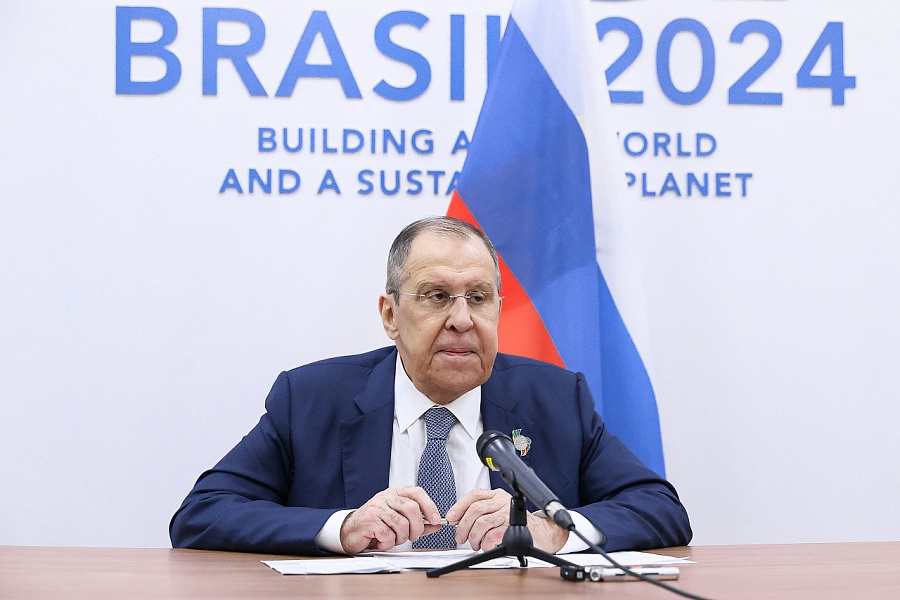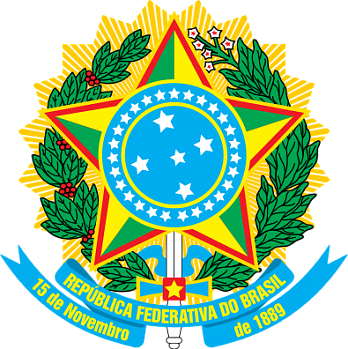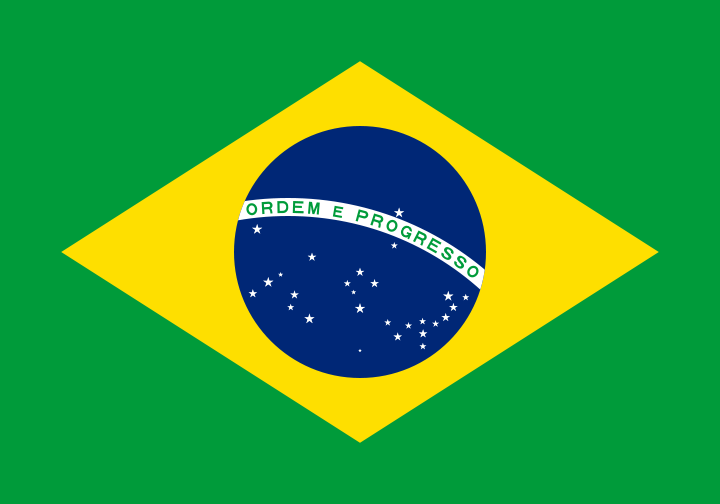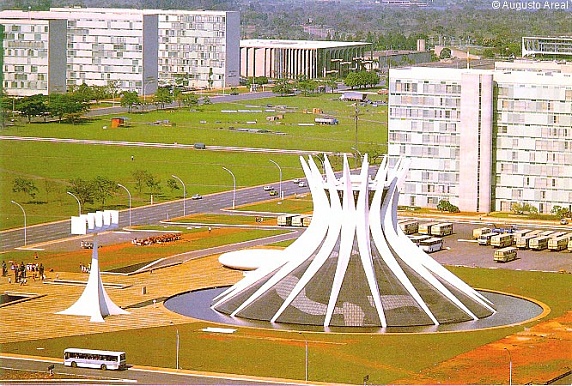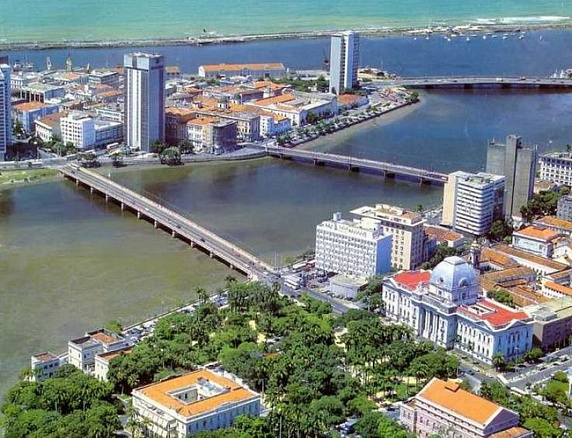 la República Federativa del Brasil
la República Federativa del Brasil
Foreign Minister Sergey Lavrov’s statement and answers to questions following the G20 ministerial meeting, Rio de Janeiro, February 22, 2024
Colleagues,
I am happy to greet you all.
We are about to wrap up the G20 ministerial meeting.
I would like to praise the Brazilian chairmanship’s active and constructive work, excellent conditions and the hospitality accorded to all of us which helps achieve a productive dialogue without anyone attempting to leverage it for selfish interests. Ultimately, the G20 was created to identify shared collective approaches to addressing the real and pressing issues facing the global economy.
Clearly, today’s global economy is grossly distorted by the methods that the West is using to punish those who do not follow its “rules,” which are steeped in neocolonialism, and to wipe out competitors. These methods include unlawful sanctions, asset seizure with an eye towards confiscating foreign-owned property, blackmail, trade blockades, and much more, which undermines the basic foundations of the global economy and hinders the achievement of perspectives that are of interest to all countries around the world. Opportunities are being thwarted as the West prevents their realisation in order to promote its self-serving interests.
Of late, the debates have focused on whether the G20 should address geopolitical issues. I think the Brazilian chairmanship has identified the proper perspective on the relationship between geopolitics and the economy precisely in the context that I mentioned above. It is important to take a look at how geopolitical trends and actions (primarily those of the Western group) affect the prospects for unhindered growth of the global economy in the interests of all countries and hamper the progress of mutually advantageous economic projects.
This consideration was critical when we formulated the agenda for our meeting yesterday. We reviewed it in great detail. The developing countries widely emphasised the need to move away from imposing artificial limits on opportunities through attempts to achieve geopolitical goals. For the most part, they have nothing to do with international law and are aimed at upholding the interests of a small group of countries. Some of our Western colleagues’ attempts during the G20 ministerial meetings to divert the discussion from this key issue to the topic of supporting the Kiev regime, focusing on groundless accusations against the Russian Federation and Ukrainising the agenda are not supported by developing countries and most of the Global South countries, as was evident from the discussion that took place here.
The second issue − reforming global institutions − is closely related to this one and was discussed during the second day of the ministerial meeting. It is an old question. The G20 has been discussing this issue for about 20 years now.
I recalled today that in 2010, the G20 adopted a communique that solemnly proclaimed the goal of increasing the role and the importance of the developing countries in global governance institutions meaning the International Monetary Fund, the World Bank, the Organisation for Economic Cooperation and Development, and the World Trade Organisation. That was 14 years ago.
I also reminded everyone today about the decision that was made last year, when a similar text was again adopted unanimously at the G20 summit in New Delhi in September 2023 stating the need to reform global institutions in order to increase the representation of the developing countries proportionately to the actual weight of their respective economies.
Everyone is well aware that the United States has been blocking the reform of the IMF fee and quota system for many years now in an attempt to artificially maintain their blocking minority in defiance of objective economic growth numbers (the US is lagging far behind China). They are not willing to share the illegally withheld percentages of votes in order, essentially, to lead this international institution themselves. Today, everyone spoke in favour of the implementation of the solemn promises included in the G20 resolution. We will support the Global South countries in this matter as best we can.
Our remarks also focused on the fact that, apart from the Bretton Woods institutions, the International Monetary Fund, the World Bank, and the World Trade Organisation, there are also new centres and unions of the Global Majority developing in different regions of the world. In the Eurasian space, these are the SCO, ASEAN, and EAEU. They are establishing contacts between themselves in the context of President Vladimir Putin’s initiative to form a Greater Eurasian Partnership open to all countries of the continent without exception. In
All these organisations should make their contribution and be heard in the context of efforts to reform the system involved in administering global institutions. The African Union has joined the G20. We think it would be fair if the regional organisations of Asia and
Many participants asked questions about UN Security Council reform in connection with plans to reform the global administration structures. We have presented our position that the Security Council should be reformed by way of dealing with the main injustice – the under-representation of developing countries. Today, six members of the UN Security Council out of 15 are allies of the
The
Question: While taking over the G20 presidency, President of Brazil Luis Inacio Lula da Silva said that the group was intended for discussing economic, not geopolitical, issues. Was it possible to stick to this?
Sergey Lavrov: Everyone is increasingly aware with each passing day that the West’s geopolitical games and escapades are affecting the global economy and distorting the objective processes that are emerging in various regions and require unified efforts and a barrier-free space.
Contrary to these objective requirements, the
I think that our Brazilian friends have found the right “angle of attack” to address this topic, considering the geopolitical issues from the point of view of their direct effect on the economy, finance, and international trade relations, which is the purview and mandate of the G20. The latter is increasingly more difficult to implement because economic indices and trends are being deliberately distorted by the West. This was a useful and correctly formulated item on the agenda. I think discussions on this topic will continue at the summit.
Question: Brazilian media outlet Valor International released an article claiming that your trip for talks with President of Brazil Luiz Inácio Lula da Silva might fail to materialise for lack of guarantees to refuel your aircraft stemming from the distributor’s sanctions-related concerns. What can you say about this? Will the meeting with the President take place? How are you going to make it to Brasília?
Sergey Lavrov: I’m not going to delve into our Brazilian hosts’ difficulties with refueling their foreign guests’ aircraft. It just happened that way and is a good example of how, in addition to the economy, the geopolitics affects relations between countries.
In fact, almost all aircraft refuelling companies in
Question: The previous G20 summit in
Sergey Lavrov: They are increasing pressure, no doubt about it. Does it help them get revenge? I am not sure. In principle, I wouldn’t like to speculate in terms of “this one lost” and “that one won,” and then “the loser sought revenge” and on and on with no end in sight. This is a vicious circle. Unfortunately, the
Today, the
The Munich Security Conference was held prior to our meeting in
I followed some media covering the event. US Secretary of State Antony Blinken said they should not by any means divide the world into isolated blocs which seems like a sound idea, but immediately, without missing a beat, he went on to say that they will, of course, cooperate primarily with democracies. So, to use his words, there are different “blocs.” The best part, though, is him saying that all countries have a choice, “If you are not at the table in the international system, you’re going to be on the menu.” That’s the kind of approach the top
Everyone should come to realise that the unending attempts to stoke confrontation and punish the guilty, whom Americans themselves designate, is an exercise in futility. They act as prosecutor, judge and bailiff, all in one. The hysterics over the death of Alexey Navalny is stark confirmation of that. I am not going to comment on it in detail.
These people have no right to interfere in our domestic affairs, all the more so considering the plank in their own eye with Julian Assange and Gonzalo Lira, who succumbed to torture in a Ukrainian prison. Neither Americans, nor anyone else in the West commented on this in any way which shows once again that Nazis can get away with anything. This is a serious matter.
As for the demands for an “open and independent investigation,” it’s a shame. We did not demand any because of what happened to a citizen of a particular country even though we should be concerned about that as well. What did they tell us when our property (Nord Stream pipelines) was blown up? They told us there would be no international investigation and they would look into it themselves. Practicing different approaches is what neo-colonialism is all about. We are fighting it and will redouble our efforts from this point on.
Speaking of Alexey Navalny, no one knows what they did to him in
Are these people still trying to accuse us of doing something in a non-transparent manner? I think this is an unfair and unseemly thing to do. All of that happened at a time when the Germans refused to even show us the blood test results of the person they accused us of poisoning. They were arrogant to the point that it started reminding us of something. This character trait returns to them fairly quickly.
Question: You were able to meet with ministers from several Latin American countries on the sidelines of the G20 event. Could you say a few words about the agenda of these meetings? What kind of relations does
Sergey Lavrov: We issue press releases following each meeting with Latin American ministers, as well as ministers of other countries, including those from the
As a rule, we hold brief meetings on the sidelines of major international forums. These meetings make it possible to discuss the entire range of issues. However, each country has its own less urgent priorities that we can discuss in passing, face to face. With Latin American countries, we discussed their future involvement in the work of the G20 forum and BRICS. For example, we discussed this issue with our Brazilian colleague in great detail. Additionally, we focused on our joint interaction at multilateral UN venues.
Speaking of Latin America, we have established relations with the Community of Latin American and Caribbean States (CELAC), the Bolivarian Alliance for the Peoples of Our America (ALBA), the Central American Integration System, several associations of
We discussed certain issues related to trade and economic ties. As I have already said, these meetings usually deal with general issues. However, all this proved quite useful.
Question: During his recent interview with Tucker Carlson, President Vladimir Putin emphasised several times that Russia had never rejected talks on Ukraine. You have also laid emphasis on this more than once. Now after the seizure of Avdeyevka, have you noticed any signals from the US, UK or EU delegations about their readiness to start constructive dialogue finally? Did you have any contacts with the Anglo-Saxons on the sidelines of the meeting?
Sergey Lavrov: No, I didn’t. I wasn’t looking to make such contacts. Apparently, they followed their agreement to avoid any communication with our delegation. Let them stew in their own juices. They have been doing it for a long time. This has not been and won’t be in their interests.
There were tough anti-Russia statements, especially by the British and German foreign ministers. They heaped on us a pile of charges, talking about our horrible attitude to children. We supposedly kidnap them in Ukraine, take away their first and last names, give them new names so that nobody could identify them, provide them with new birth certificates and hand them to families, where they are subjected to violence and other degrading treatment.
Today, I watched CNN in the morning. They devoted their broadcast to the anniversary (this is how they count) of the special military operation that they naturally call “aggression,” “invasion,” and the like. A woman reported on her visit to Ukraine. She said they – foreign experts and journalists – heard all the time how children and women were kidnapped and raped and men castrated in Ukraine. She said all this – supposedly, they “heard” all this. Probably, many people “hear” what Ukrainian propaganda is spouting day and night, all of its lies that our Western colleagues instantly take for granted.
But “hearing” is one thing. The Georgian National Legion of the |Armed Forces of Ukraine shot bound and blindfolded Russian POWs in the head. This scene was filmed, not by journalists but by someone from the “legion,” who posted the video online. Was anyone distressed over this? No one! Unfortunately, this dose of Russophobia and arrogance is incurable. Now the Germans are particularly arrogant (the British have always been that way). Such things never disappear without a trace.
How is it possible to talk about negotiations in this situation? We are not simply talking about negotiations, but we are ready for them. President of Russia Vladimir Putin recalled the agreements reached two years ago. Ukraine’s chief negotiator, David Arakhamia, confirmed this. He leads the Servant of the People faction in the Verkhovna Rada. An associate of President Vladimir Zelensky, he carried much weight in Ukraine. However, Western politicians, including former British Prime Minister Boris Johnson, banned him from signing a peace treaty and told them to fight.
Prior to his arrival in Rio de Janeiro, US Secretary of State Antony Blinken visited Brasilia, where he was received by Brazilian President Lula da Silva. Replying to media questions after his meeting with the President, Antony Blinken said he did not see any basis for the start of the talks. This is the answer to your question. You have heard what we are saying. Two years ago, Russia confirmed its words with deeds in Istanbul. Let our Western “colleagues” explain why they are adamantly against any serious dialogue on the real problems they have created in Ukraine themselves? I am primarily referring to the Nazi regime that has declared its goal of eradicating all things Russian. We give our colleagues a selection of quotes by Ukrainian officials every time we see them.
Instead of serious talks, the West is gathering a narrow group around Vladimir Zelensky’s “peace formula.” They have one goal. According to our data, the EU, the British and other advisors and counsellors are consulting representatives of the Kiev regime on how to further promote this formula. The main message is as follows: Kiev should involve in such get-togethers (the latest one took place at Davos) as many countries as it can but should avoid adopting any final documents at them. Developing nations innocently join such “meetings,” hoping for a constructive dialogue.
The West will never support the adoption of a document that would be acceptable for all 80 member-countries opposing their anti-Russia policy. The European instruction to Kiev is as follows: you must not promote projects on paper and you must invite as many countries as possible to these meetings, saying this will be “just a conversation.” It is also necessary to always take a “family photo” and each time increase the number of faces in them. This will be the main result of Ukraine’s efforts. It does not matter what price they paid to lure developing nations into these meetings. All their “diplomacy” boils down to this. Russia had already presented its position on the negotiating process. We are people of our word but don’t see the same attitude from the West.
Question: The other day, President Putin conveyed that Russia was ready for contacts with the United States on matters of strategic stability. Are these contacts being prepared by the Foreign Ministry? If so, can they take place in the foreseeable future and at what level?
Sergey Lavrov: The Americans have not come up with serious proposals. There was an attempt at making one, when the Americans said they believed our decision to suspend the INF Treaty was a wrong move, which is why they suggested resuming inspections. They said they would come and inspect the condition of our strategic facilities. It doesn’t work that way. I can relate to their interest in seeing these facilities. However, the United States leaves aside the fact that this treaty, which incorporates provisions about mutual inspections, was based on trust, mutual respect, and transparent and friendly interaction. They leave this “aside.” It is impossible to restore trust now that Russia was openly declared a hostile state and a threat that needs to be destroyed and be dealt a “strategic defeat.”
President Putin noted that we were open to a dialogue on strategic stability, but that dialogue should incorporate all factors affecting this stability. The existing aspects have been exacerbated by an aggressive and hostile policy of the United States towards the Russian Federation. Not only policy, but practical moves as well: the Ukrainians would not be able to fight without American weapons and instructors, firing pointers, or satellite and other data provided by the United States. The Americans are fighting against us, and it’s not hybrid fighting, but, in a number of cases, direct engagement, which is also a fact.
We are always ready for talks. We have never turned down any proposal. But it must be understood that it should be an honest exchange, not something the United States is used to.
Many of our colleagues from the Global Majority share with us in confidence how the Americans demand that they join their sanctions against Russia and what threats they use. That prompts an interesting conclusion about US diplomacy and what it now amounts to. Say, Americans need to get something specific regarding Russia or China or any other source from a particular country. They get together and the Americans tell them they need that particular country to do so and so. The country in question responds that they don’t like it, and wonders what would happen if they don’t comply. The Americans tell them that if they don’t do as told, they will punish them, impose sanctions, and put them on some lists. When they ask what they will get if they comply, the Americans tell them they won’t punish them. So much for “equal” exchange.
Question: Joe Biden vowed that Washington would impose a major package of sanctions on Russia on February 23. The restrictions were approved earlier. The list was released today. How do you plan to respond?
Sergey Lavrov: We will respond with real actions designed to grow our own economy, to advance and to strengthen the ties with our partners who, unlike the Western minority which continues to think in colonial and neo-colonial terms, are our reliable partners who we can come to terms with us and who build their economic ties in the interests of their own people in order to improve living standards, to ensure prosperity, and to maximise the efficient exploitation of natural resources in their respective countries. They build their own logistical and financial chains that, like any other action to promote the economy, would not depend on those who are accustomed to barking orders in the global economy, plundering and killing the peoples of other countries, taking their natural resources and wealth, and living off of them.
The actions that the Americans and their satellites are now taking rely on this tradition which can be seen on the global markets, where they eliminate competitors, including Russia. They have forced Germany and many other European countries to stop buying Russian gas. They made them, first, invest enormous amounts of money into building plants for thei
they found nothing. I think this is ludicrous and shameful for any country and is an obvious fact.
We will do everything to make sure our economy and ties with our partners who see strategic benefits in expanding these ties do not depend on arbitrariness, diktat, or whims of those countries that have a proven track record of being unable to reach and honour agreements. They view any situation in the world exclusively through the prism of their biannual elections, and they must by all means come up with something to stoke public opinion with and to let everyone know they are hot stuff.
Sad, but it’s a fact to be reckoned with. If and when (President Putin spoke about it as well) they come to their senses and regain the ability to analyse the ongoing developments, their own abilities and international trends in a proper way, and realise that they need to talk to Russia, they will be welcome to do so. But first we will listen to what they have to say. If they come with proposals implying any kind of dependence on their whims or turnarounds in politics, which is a frequent occurrence there, I can tell you right now we don’t need such contacts.
There are areas where we can establish cooperation without being overly concerned about things suddenly taking a different turn on the other side.
Please note that addressing a Russia-ASEAN summit several years ago President Putin proposed developing our common Eurasian continent as effectively as possible for the benefit of all Eurasian countries. He suggested referring to this work as the shaping of the Greater Eurasian Partnership. The Shanghai Cooperation Organisation, the Eurasian Economic Union, and ASEAN were designated as potential partners and beneficiaries. The process is underway. Ties have been established between all the above organisations, and there are prospects for joint projects.
Whenever we discuss the need to use the comparative and competitive advantages of our vast common continent, which is home to countries and associations that account for the bulk of the global economy’s growth, we emphasise that the Greater Eurasian Partnership is open to all integration associations on this continent and to all, without exception, nation states of the continent. The door is open. All one needs to do is knock on it and say they came in peace rather than with ultimatums.
Question: Julian Assange is now trying to secure the right to contest his extradition to the United States. For obvious reasons, we are not witnessing any vehement protest or frenzied attention from Western media outlets and politicians, although they advertise freedom of speech and efforts to counter abuse of power as values and as their professional duties. Could you comment on this, including the actions of colleagues? Do you consider Assange a modern day voice of conscience?
Sergey Lavrov: Regarding Julian Assange, I have already said it is a disgrace to Western democracy. When grilled by journalists at briefings, the Americans say that he is a criminal, not a journalist, who has violated multiple local laws, and who had recruited US Army personnel. As you know, he provided the international public at large with authentic information about the classified activities of US special services and military personnel. This is true, and such actions flagrantly violated their laws, including the US Constitution. If this amounts to criminal conduct, then criminals engaged in such conduct do not want their crimes to be made public.
Regarding claims that Assange is not a journalist, I recall that we had sought out French officials in “better times” several years ago. We told them that this did not befit a country promoting democracy in all its forms. In 1990, France initiated the approval of a document of the Copenhagen Meeting of the Conference on the Human Dimension, part of the CSCE process. At that time, the Soviet Union was relegated to the background. The document noted that all CSCE members would allow their citizens to gain unimpeded access to information whose sources are located in the relevant country and elsewhere. We asked our dear French colleagues why they failed to apply these principles to RT and Sputnik whose correspondents were forbidden to attend briefings at the Elysee Palace. They told us that these people were not journalists, and that their work amounted to propaganda. This took place when everyone hoped that Ukraine and its masters would honour the Minsk agreements. It is pointless to discuss this issue today.
Question: Currently, the G20 consists of 19 countries, with the EU represented also at the national level, and the African Union since last year. Unlike the EU, it did not count as a separate unit, so we are still referring to G20 rather than G21. Did the members of the G20 discuss the issue of arithmetic? Do you think it is fair that one union is counted as a unit while the other is not?
Sergey Lavrov: You made a mistake with the arithmetic. The EU is not counted as a unit in the G20. The latter consists of 20 states. I hope that integration structures from other continents will also be represented. This would be fair, considering that both the EU and the African Union are included. The have served as trail blazers, setting a precedent.
Question: People in Latin America are fond of you. There were many messages from Argentina, among other countries, expressing concern that you did not visit them. How serious is Russia’s focus on Latin America, especially now that we are compelled to reorient our external ties? How strong and stable is Russia’s focus for the future?
Sergey Lavrov: We are always willing to develop relationships with those who display reciprocity. When both sides benefit from their relationships, they will continue to develop them regardless of any obstacles and problems.
Latin America is one of our major partners. Our trade is growing substantially and investment activities are also gaining momentum. Our fertiliser and grain are in high demand. Likewise, livestock products and fruit from Latin America are popular in Russia.
However, we want these direct exchanges of goods and food to be complemented by joint investment projects. We are developing them as well. We have many joint projects involving Soviet and Russian aircraft and their maintenance. There is a regional centre for training rescue personnel in Cuba. We are carrying out many plans.
As for the regrets about my failure to visit Argentina, we are polite people after all.

